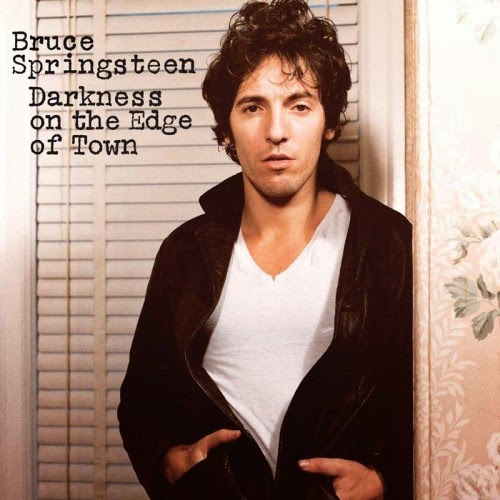Waiting on Voyage is the debut album by twenty-one year
old British singer/songwriter George Ezra, yet another in a long list of
twenty-something year olds breaking through in this very in vogue acoustic-folk
style. However, at the same time, this guy is quite different stylistically from
the likes of Ed Sheeran and Jake Bugg largely thanks to his very distinctive
singing voice.
George Ezra’s
voice when you hear for the first time is a voice that you do not immediately think
belongs to a twenty-one year old, and sounds more so like someone in their
sixties, someone with years of singing behind them. With this in mind, I must
confess that I don’t think I have heard a voice quite like this one on someone
in the early stages of their career, and Ezra certainly has a voice way beyond
his years. Sound-wise I would describe his voice as being a cross between Eddie
Vedder and someone in the ilk of Robert Johnson, or other delta blues
musicians, with its warm bluesy tone and deepness. It is this unique and very
mature voice which more than anything ensures that Ezra’s music stands out
within what is quite a saturated singer-songwriter market, and after hearing a
couple of singles, made his debut album Waiting
on Voyage that much more intriguing to find out if the songs themselves
could match up to the singer.
Ezra’s music
is very much acoustic-based (he uses a semi-acoustic guitar and occasionally a
resonator) and contains a blend of folk, skiffle, blues, and pop. Yes the
song-writing at this stage is quite simplistic and the music definitely owes a
lot to Ezra’s unique voice and the overall sense of melody it portrays, but
often when you have such a distinct sound in your armoury whether it be a
distinctive guitar, or singing style, simplicity can work best, with complex
arrangements or experimental sounds only working to distract the listener. With
this in mind, at times the music on here does suffer a bit from over-production,
with whoever is producing trying to give some of the tracks a modern pop kick
to them, something which is totally unnecessary. Some of the tracks could do
without the synths, sequencing and electronic backing as they do not add
anything, and quite frankly do not work well with the style of music Ezra is
playing.
So what
tracks stand out on the album? Well the album kicks off with a great opener “Blame
It on Me”, which contains some skiffle influences in the guitar playing and
also has a great sing-a-long chorus, something most of the songs on here
contain. “Budapest” is one of the singles on the album which began to get Ezra
noticed in the music world, and is more a mellower folk track with a slight
calypso feel to it especially in the vocals and guitar. It is on tracks like
this one that you really get to hear the unique quality of Ezra’s voice and his
very distinctive deep tone. “Cassy O” is the second single, and although
lyrically it is a bit throw-a-way, it has a very nice country shuffle to it and
does a good job in highlighting Ezra’s efficient rhythm guitar playing, a style
that is quite experimental when it comes to different strum patterns. “Did You
Hear the Rain” musically is perhaps the most interesting track on the record
and begins with a very haunting delta-blues like moan, before Ezra begins
singing a cappella in a deep bluesy voice which sounds as if it could have come
straight from the cotton fields in the Southern states of America, it is truly
something. The track then transitions into a bit of an alt-folk track full of
mood and feeling in what is definitely one of the album highlights. “Drawing Board”, “Stand by Your Gun” and “Barcelona” are also other noteworthy tracks on
what is a very varied album stylistically and one which keeps the listener
guessing as to what will come next, with Ezra bouncing from style to style across
each track. There are a few dud tracks on the record, namely “Leaving It Up to
You”, “Breakaway” and “Over the Creek”, but on the whole these are the exception
to the rule and do not really diminish the overall quality of the album.
Waiting on Voyage is a very interesting and eclectic
first up effort from George Ezra. There are a lot of things going on here
musically which stand out and the fact he is willing to move from style to
style across the album is quite daring for a debut. At times the production
does get a bit too much and sees some of the songs lose their focus a bit, with
the production team going dangerously down the pop for pop sake road which
tends to be employed a lot in this day and age. Despite this, there is definitely
plenty to work with here and if anything his quite remarkable voice will ensure
he has a future in the industry. It will be very interesting to see where he
goes from here musically, especially as he begins to mature as a song-writer,
while as the voice itself, maturity-wise is already there.
A-
- Sam



